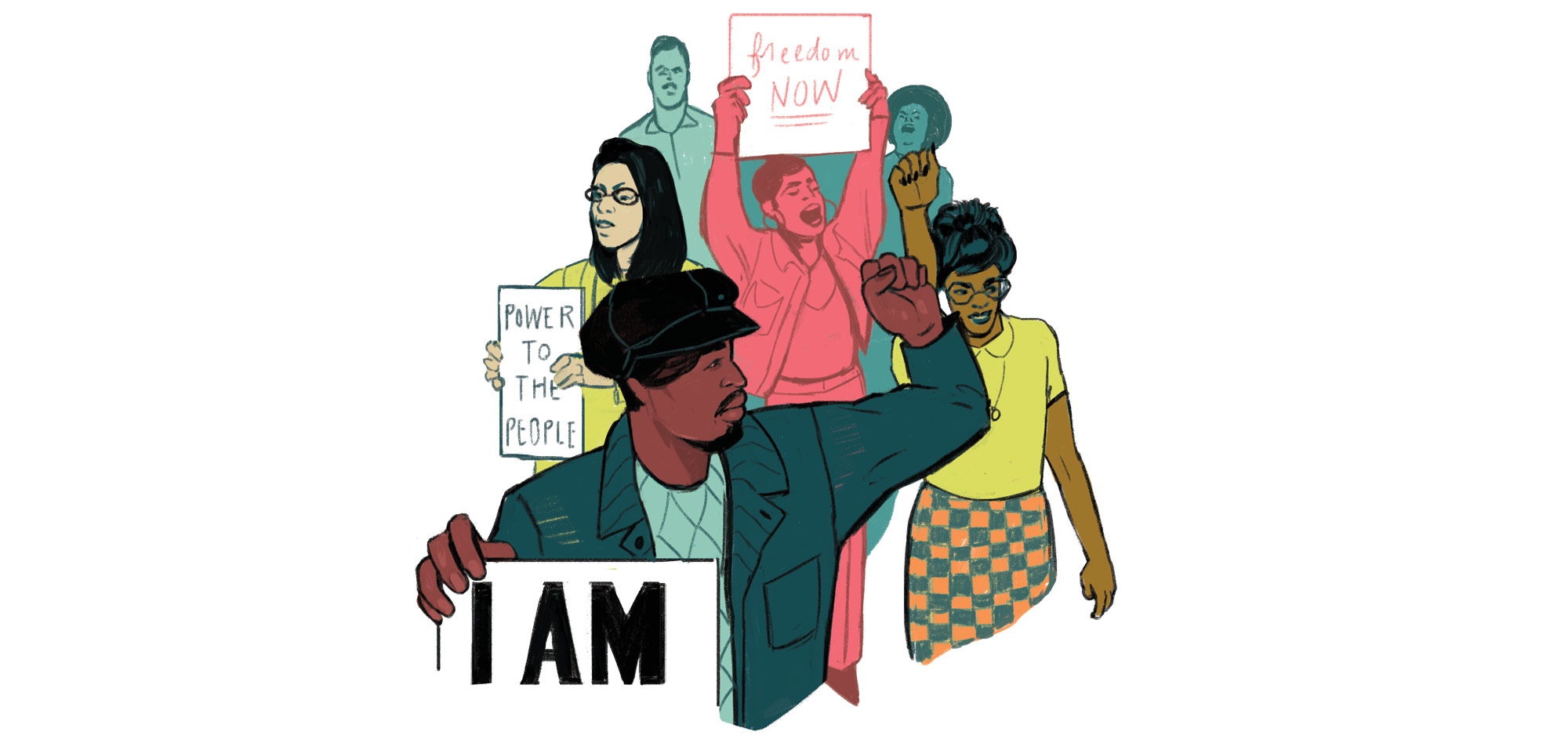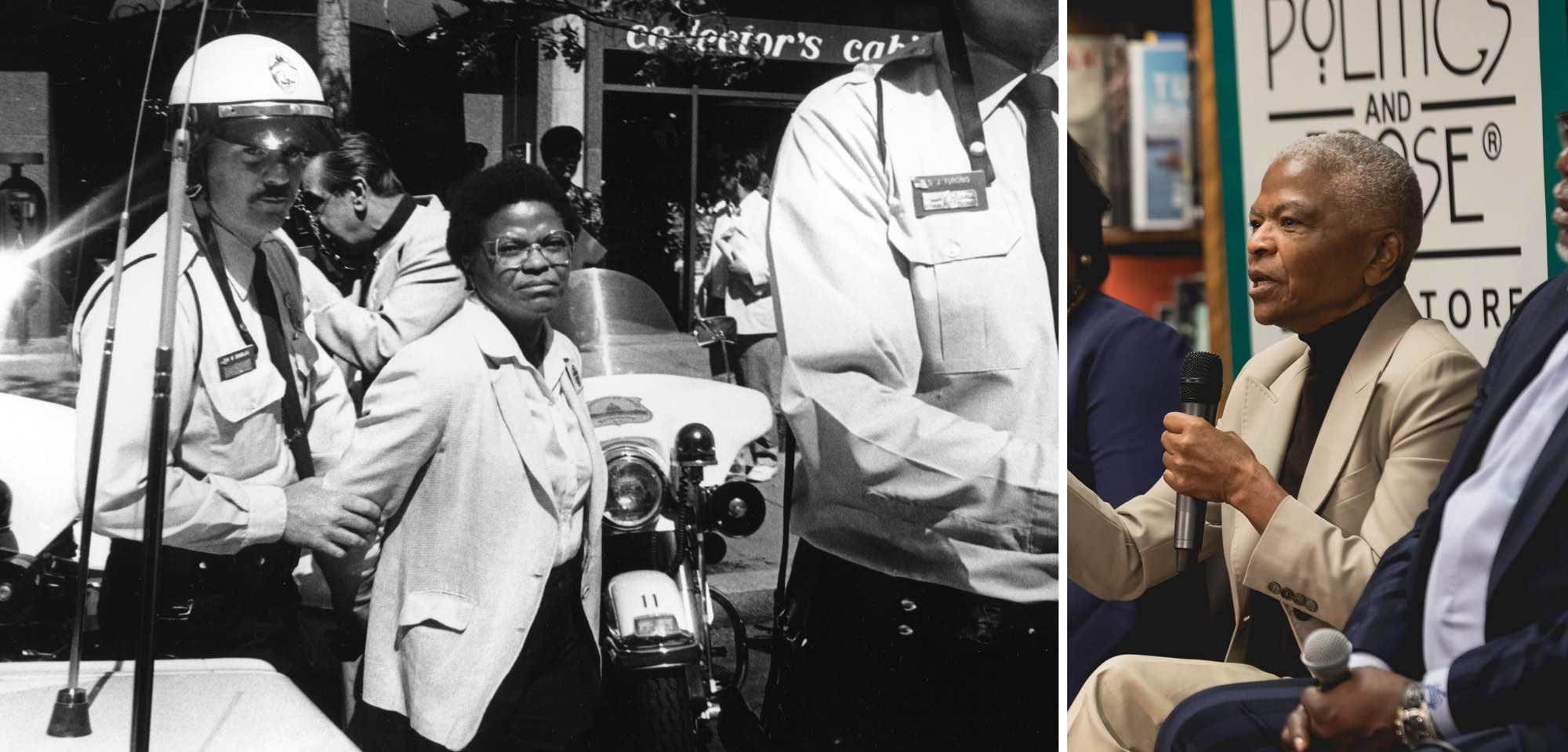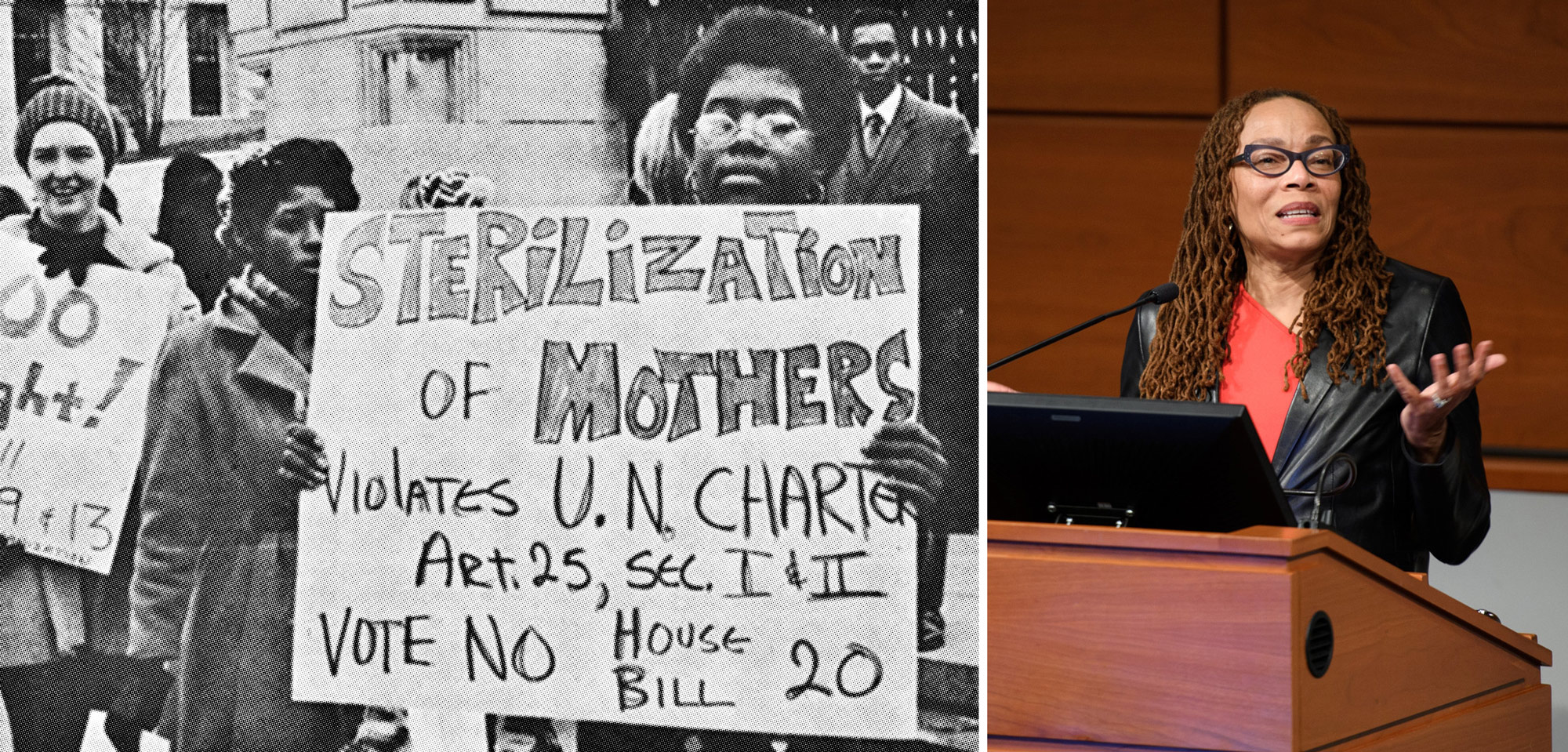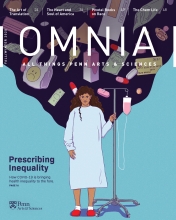Dialogue, Revisited
OMNIA looks back on books from three faculty whose contributions to the conversation on race and social justice have stood the test of time.

The impact of a book can be measured not only in the beauty of its words or the strength of its arguments, but in the legacy left behind—what it has, and continues, to teach its readers about the issues of the day and lessons for the future. The wave of protests in the U.S. following the killings of unarmed Black men and women, including George Floyd, Breonna Taylor, and Ahmaud Arbery, have put a spotlight on scholarship on race and inequality. As demonstrations in all 50 states and Washington, D.C. have called for action by governments and institutions, we take a look at three books by eminent faculty that have spurred movements and informed cohorts of future experts and activists.
The Urgent Matter of Black Lives
In November, the Center for Africana Studies and Black Alumni Society sponsored The Urgent Matter of Black Lives, a panel that explored the urgent work that must be done in order to fight systemic racism. Mary Frances Berry, Dorothy Roberts, and Tukufu Zuberi discussed the social, legal, economic, and political dynamics of race, nationally and internationally. You can view the panel here.
Black Resistance/White Law: A History of Constitutional Racism in America, published in 1971 by Mary Frances Berry, Geraldine R. Segal Professor of American Social Thought and Professor of History and Africana Studies, was inspired by the protests that followed Martin Luther King, Jr.’s assassination. The book investigates the government’s power to employ federal forces to quell rebellions and protests. Killing the Black Body: Race, Reproduction, and the Meaning of Liberty, published in 1988 by Dorothy Roberts, George A. Weiss University Professor of Law and Sociology, Raymond Pace and Sadie Tanner Mossell Alexander Professor of Civil Rights, and Professor of Africana Studies, coined the term “reproductive justice” and redefined reproductive rights as being not just about abortion, but the history of racism and the devaluation of Black women. And Thicker Than Blood: How Racial Statistics Lie, published in 2001 by Tukufu Zuberi, Lasry Family Professor of Race Relations and Professor of Sociology and Africana Studies, presents a critique of the concept of racial statistics and asks scholars to question the validity of their use in social science.
Join us for a journey that spans decades, in which we examine the unique context of each book—and its lasting impact.
Black Resistance/White Law
by Mary Frances Berry
During protests following the death of George Floyd and other Black Americans in encounters with the police, the government’s use of the National Guard has been a fiercely debated issue. The military clauses of the Constitution, in Article I, Section 8 and Article IV, Section 4 let the federal government suppress insurrections and intervene in domestic disturbances when asked by the states. In her book Black Resistance/White Law: A History of Constitutional Racism in America, Mary Frances Berry argues this power was originally created to crush rebellions by enslaved people and is still most often used to control protests by dissidents, minorities, and the poor.
Berry, Geraldine R. Segal Professor of American Social Thought and Professor of History and Africana Studies, was inspired to write Black Resistance by the protests that followed the assassination of Martin Luther King, Jr. in 1968. She was a Law student at the University of Michigan, and one of her professors asked her what ability the federal government and the President had “to call out the National Guard or do whatever the President wants to do.”
“I realized that I didn’t know the exact answer to the question, and I decided I would find out,” Berry says. She put aside her thesis and instead wrote Black Resistance/White Law, her first book in a catalogue that now totals 13. The book records how often the federal government invoked this power, for incidents ranging from slave rebellions to the Seminole Wars in Florida—where Blacks had joined the indigenous people—to protests in cities during the yellow fever epidemic. “As in every kind of disease,” says Berry, “it seemed to affect poor people and Black people more than other people who were more well off.”
She traced these uses of federal force up to the time she was writing, and found that a power created to quell rebellions of enslaved people was still most often used to control protests by minorities and the poor.
At the time, legal scholars didn’t consider the military clauses as among the pro-slavery compromises made by the writers of the Constitution to appease the Southern states. These concessions included the three-fifths compromise, which counted enslaved people as three-fifths of other persons for purposes of representation; the fugitive slave clause, which required enslaved people to be returned to their owners; and the Electoral College, designed to make sure that smaller and less-populous states continued to have power in presidential elections.
Berry wanted to make the case with her book that suppression of domestic disturbances should be included among these. “The Southerners put it in there because they were concerned about slaves rebelling, and they thought they might need some help,” she says. “But it’s still there. It gets talked about in every kind of rebellion that takes place,” including this year’s protests in Portland and Seattle.
I was Black. And this was my first book. I was a voice crying in the wilderness saying, ‘Hey, you should look at this.’
The book sold well and has influenced a generation of scholars. But it didn’t immediately cause legal scholars to change how they talked about the military clauses. “I was a very junior scholar,” says Berry. “I was Black. And this was my first book. I was a voice crying in the wilderness saying, ‘Hey, you should look at this.’” They were recognized as pro-slavery compromises only after a white scholar, who already had an established reputation, made the same argument.
Berry went on to write other books and articles that were acknowledged as pioneering, including histories of the Equal Rights Amendment and the ex-slave pension movement. She revised and updated Black Resistance/White Law in 1994. “When I wrote Black Resistance, I was very, very pessimistic, in part, because MLK had been assassinated and the way that affected me so deeply,” she recounts. “But then I saw that in the 1970s and 1980s and 1990s, in towns and cities and areas all across the country, there were communities who engaged in protests and activities demanding justice on local issues.”
Then, in 2014, she was named a distinguished fellow of the American Society for Legal History, the highest honor of the society. At the ceremony, says Berry, “somebody got up and read all my stuff and they talked about how important Black Resistance/White Law was as a pioneering work. I thought, wow, I’m almost dead, but that’s okay.”
Asked if she thinks there needs to be a third edition of the book, she says she thought about it. But her most recent book, History Teaches Us to Resist: How Progressive Movements Have Succeeded in Challenging Times, talks about resistance to presidential administrations from Franklin Roosevelt to Donald Trump. And Black Resistance/White Law has seen a surge in sales this year. “People are still reading it and buying it,” she says, “and that means it probably still serves its purpose.”
Killing the Black Body
by Dorothy Roberts
Dorothy Roberts began her academic career in 1988 as a professor of law in Newark, New Jersey. She was particularly interested in doing research and advocacy around a topic that no one had named.
“The term ‘reproductive justice’ hadn’t been coined yet,” says Roberts, George A. Weiss University Professor of Law and Sociology, Raymond Pace and Sadie Tanner Mossell Alexander Professor of Civil Rights, and Professor of Africana Studies. “Most Americans at the time thought that reproductive rights were just about abortion and centered on white women, but that left out the entire history of racism and the denial of Black women’s reproductive freedom.”
One of the issues Roberts was investigating was the prosecutions of women for using drugs while pregnant during the “war on drugs” campaign in the late 1980s. “I suspected that the women being arrested were Black and that racism was behind turning this public health problem into a crime,” she says. “The ACLU shared with me an internal memo on the prosecutions that included the names and contact information for the lawyers representing the defendants. I called all the lawyers and asked them for the race of their clients. Sure enough, the vast majority were Black women.”
I remember having a eureka moment where I pulled over my car and began to write down all the ways in which government policies had devalued Black women’s bodies.
This led Roberts to her very first scholarly project, “Punishing Drug Addicts Who Have Babies: Women of Color, Equality, and the Right of Privacy.” The article, which was published by Harvard Law Review in 1991, set her on a trajectory that would define the rest of her career and lead directly to her first book. “I remember having a eureka moment where I pulled over my car and began to write down all the ways in which government policies had devalued Black women’s bodies and reproductive decisions,” says Roberts.
Killing the Black Body: Race, Reproduction, and the Meaning of Liberty was published in 1997. The book combats media tropes of “welfare queens” and “crack babies” and exposes a broad range of historical abuses and policies that have devalued Black women’s reproductive autonomy, from enslavers’ ownership of fertility to the exclusion of Black women from mainstream feminist and civil rights agendas.
“One of my favorite aspects of Killing the Black Body is how prescient it was, and therefore how relevant it continues to be today,” says Roberts, who is also the director of the Penn Program on Race, Science, & Society. “The book’s challenge to criminalizing pregnancy predicted the unified right-wing strategy to punish women for pregnancy outcomes while also blocking access to abortion services, and its emphasis on racist birth control and sterilization policies presaged the recent revelations of coerced sterilizations in California prisons and hysterectomies in an ICE detention center in Georgia.” She adds that she is also honored by how her book helped to inspire the reproductive justice movement that was emerging at the time she wrote it.
Because so many of the policy issues Roberts tackled in the book were still so relevant decades later, she published an anniversary edition of Killing the Black Body in 2017 with a new preface that highlighted both her exhilaration and exasperation about what had transpired in the intervening years.
“Reproduction is still being criminalized,” says Roberts. “There have been cases of women who’ve had stillbirths being prosecuted for homicide, and these same fetal protection policies can be used to punish women for terminating a pregnancy.” And harmful welfare policies that were just being implemented when Roberts was writing about them in the book are now firmly in place, she says. “States have passed child exclusion policies that deny increases in benefits to deter people receiving welfare from having more children.”
There has been progress in some areas, Roberts notes. “The term ‘reproductive justice’ has gained a lot of traction—the framework that replaces choice as the dominant paradigm and expands reproductive freedom to take into account the social, economic, and sociopolitical conditions that determine what kinds of decisions people are able to make.”
Killing the Black Body continues to make its impact on academia and the wider public. It is used in college courses across the country to explain the ways in which racism and sexism intersect in unjust policies and how movements can address them, and the book is consistently a best seller under the topic of abortion and birth control.
Roberts has since published two additional highly influential books: Shattered Bonds: The Color of Child Welfare, in 2002, and Fatal Invention: How Science, Politics, and Big Business Re-Create Race in the Twenty-First Century, in 2011. And she is back in high gear with a forthcoming book planned for publication in 2021, which calls for dismantling the foster care system.
“This book marks the 20th anniversary of Shattered Bonds and is much more hard-hitting,” says Roberts. “It shows how the so-called child welfare system is like the prison system. Instead of providing support to families living in poor and marginalized communities, it polices them by threatening to take their children away.”
Thicker Than Blood
by Tukufu Zuberi
In 2001, Tukufu Zuberi had been on the Penn Sociology faculty for 12 years, having arrived fresh from completion of his Ph.D. at the University of Chicago. His scholarly roots were in demography—a quantitative discipline, focused on the numbers behind population change through processes like mortality, reproduction, and migration. He had spent the years since his arrival at Penn working on funded research projects, including the African Census Project, Mortality in Africa Before and During the HIV/AIDS Era, and African American Immigration and Mortality in Liberia.
But that year, Zuberi published Thicker Than Blood, a slim volume with a provocative subtitle, “How Racial Statistics Lie,” that challenged the tools of his trade. The publication of this book marked a juncture in his academic journey—and as he tells it, he’s still traveling that path today.
In Thicker Than Blood, Zuberi, who is now the Lasry Family Professor of Race Relations and Professor of Sociology and Africana Studies, presents a critique of the concept of racial statistics and asks colleagues to question the validity of their use in social science. He begins with an overview of the historical events that fed the development of the idea of race, starting in the 15th century with European colonialism and enslavement of Africans. The second section of the book examines how the methods of social statistics evolved, and traces the connection of these methods to promoters of eugenic theories. The concluding section of the book considers how social scientists might approach race more correctly, and honestly, in their theories and analysis.
While the book offers technical detail for the quantitative social scientist, on its most fundamental level, Zuberi’s argument is that racial statistics are misused in social science to imply causality between race and a range of outcomes, where there is none. Race, as Zuberi points out in the book’s introduction, “is a socially constructed process that produces subordinate and superordinate groups … the meaning of race depends on the social conditions in which it exists.” Simply put, as Zuberi explains it today, “race doesn’t cause anything … Blackness doesn’t cause prostate cancer—the active agent is the social construction. You don’t have a higher likelihood to not get a college degree because you are Black—it’s because of all that goes along with being Black in this culture.”
On its most fundamental level, Zuberi’s argument is that racial statistics are misused in social science to imply causality between race and a range of outcomes, where there is none.
Zuberi contends that the objectivity of the methodology is compromised by the fact that the logic of statistical methods was shaped by racial concepts. “In essence,” he says, “social scientists had already established their biases about the subject matter before they learned the method.” The result is a circular reasoning, where conclusions that confirm biases are arrived at using a quantitative statistical analysis that was itself developed to support assumptions regarding racial hierarchies.
The publication of Thicker Than Blood, Zuberi recalls, “opened a can of worms.” He continued to engage with his academic community on the issues surrounding racial statistics in the social sciences in conferences around the world. These conversations led to his next book, White Logic, White Methods: Racism and Methodology, a collection of critical essays by a range of authors that Zuberi and his co-editor, Eduardo Bonilla-Silva, published in 2008. That book was recognized with the American Sociological Association’s Oliver Cromwell Cox Book Award.
Zuberi continues to speak regularly on racial statistics and the demography of race, and he is currently working on a book on that topic. But his perspective has evolved, as his work in the social sciences converges with engagement in the humanities. Nearly 20 years after the release of Thicker Than Blood, Zuberi’s resume includes directing an award-winning documentary, African Independence; hosting the long-running PBS series History Detectives; and curating Penn Museum’s new Africa wing. His path reflects his passionate belief that humanists and social scientists each critically need the perspectives of the other.
Looking back, Zuberi explains, “I wrote this book as a fire to ignite more creative analysis in the social sciences.” In the concluding section of Thicker Than Blood, he issues a challenge to the scholarly community to embrace reflection on the “political and theoretical ideas that motivate different interpretations of social science results. We must recognize that the researcher is part of what he or she observes. We do not passively or objectively observe the statistical universe as scientific outsiders.”
“Social scientists,” as he elaborates now, “are not innocent—you are not objective. And I know because I am that social scientist. I did that statistical analysis. So, I’m not far from that practice, but I also do the other [humanistic] thing, and I see how profound its impact is—going to a museum as a child, entering one as an adult, leaving with a perception of a narrative about humanity and their place in it. I’m here to disrupt that narrative and give birth to a creative skepticism which allows us all to be better human beings.”
Scholarship on race and policy is part of a tradition of excellence at Penn Arts & Sciences, where faculty are experts on subjects ranging from the political power of protest to the origins of democracy.
Scholarship by our faculty inform, investigate, and shape critical conversations across the liberal arts. The books, films, and lectures listed here are some of the works by Penn Arts & Sciences faculty that provide insight on the varied ways race influences all aspects of our lives.
If you want to learn about how race and policy affect lived experiences, read (and watch):
- “African American Literature’s Aberrant Weather” (2019), a 1.5 Minute Climate Lecture given by Herman Beavers, Professor of English and Africana Studies [WATCH HERE]
- Won’t You Be My Neighbor: Race, Class and Residence in Los Angeles (2006), Camille Z. Charles, Walter H. and Leonore C. Annenberg Professor in the Social Sciences and Professor of Sociology and Africana Studies
- Harlemworld: Doing Race and Class in Contemporary Black America (2001), John L. Jackson, Richard Perry University Professor of Communication and Anthropology, Professor of Africana Studies, and Walter H. Annenberg Dean, Annenberg School for Communication
- Help Me to Find My People: The African American Search for Family Lost in Slavery (2012), Heather Williams, Geraldine R. Segal Professor in American Social Thought in the Department of Africana Studies
If you want to learn about race and democracy, read:
- The Loud Minority: Why Protests Matter in American Democracy (2020), Daniel Q. Gillion, Julie Beren Platt and Marc E. Platt Presidential Professor of Political Science
- The Spectre of Race: How Discrimination Haunts Western Democracy (2018), Michael Hanchard, Chair and Gustave C. Kuemmerle Professor of Africana Studies
- Southern Nation: Congress and White Supremacy after Reconstruction (2018), John Lapinski, Robert A. Fox Leadership Professor of Political Science, David A. Bateman (Cornell University), and Ira Katznelson (Columbia University)
- Still A House Divided: Race and Politics in Obama’s America (2018), Rogers Smith, Christopher H. Browne Distinguished Professor of Political Science, and Desmond King (University of Oxford)
If you want to learn about how race and religion intertwine, read:
- Women in the Church of God in Christ: Making a Sanctified World (2007), Anthea Butler, Associate Professor of Religious Studies and Africana Studies
- Your Spirits Walk Beside Us: The Politics of Black Religion (2008), Barbara Savage, Geraldine R. Segal Professor in American Social Thought in the Department of Africana Studies
- Birth Control Battles: How Race and Class Divided American Religion (2019), Melissa Wilde, Professor of Sociology
If you want an international perspective on race, politics, and history, read:
- Racial Politics in Contemporary Brazil (1999), edited by Michael Hanchard, Chair and Gustave C. Kuemmerle Professor of Africana Studies
- A Different Shade of Colonialism: Egypt, Great Britain, and the Mastery of the Sudan (2003), Eve Troutt Powell, Christopher H. Browne Distinguished Professor of History and Africana Studies
- Exceptional Violence: Embodied Citizenship in Transnational Jamaica (2011), Deborah Thomas, R. Jean Brownlee Term Professor in the Department of Anthropology
If you want a philosophical perspective on race, read:
- What Is Race? Four Philosophical Views (2019), Quayshawn Spencer, Robert S. Blank Presidential Associate Professor of Philosophy, Joshua Glasgow (Sonoma State University), Sally Haslanger (Massachusetts Institute of Technology), and Chike Jeffers (Dalhousie University)










